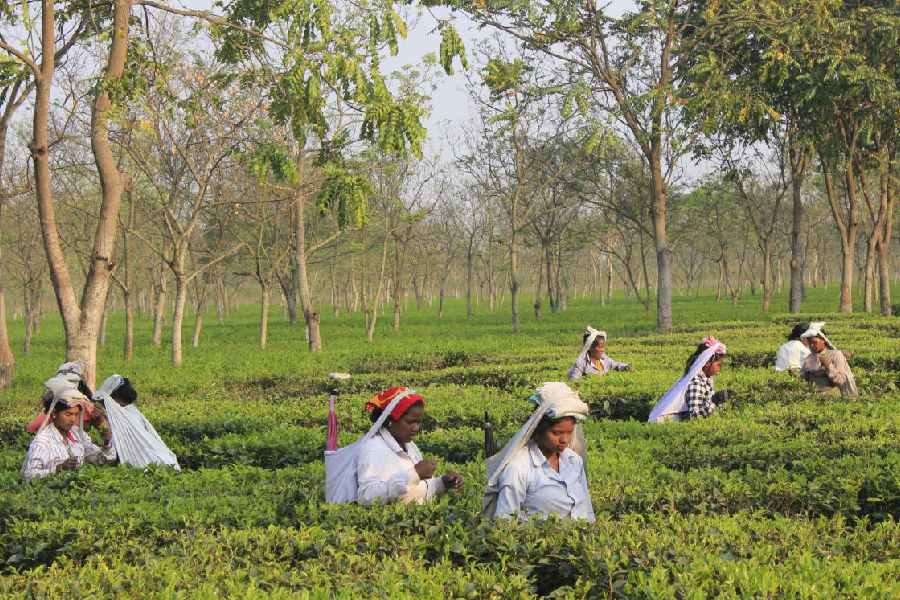Burgeoning domestic consumption and an export push to China could lift the fortunes of the Darjeeling tea industry, which is reeling under the triple whammy of falling production, prices and export.
Many gardens are said to be losing around Rs 200 a kg this year as they also fight rising costs led by higher wages and cheap imports from Nepal that jostle for shelf space in shops in and around Calcutta.
“Darjeeling tea is a patient in ICU and half the gardens are for sale looking for buyers,” proclaimed Anshuman Kanoria, owner of Goomtee Tea Estate, who also happens to be the chairman of Indian Tea Exporters’ Association.
He batted for urgent government intervention by way of financial support and legislation in regulating Nepal tea import to India.
“As I see, there are two markets which can really create demand for Darjeeling tea. One of course is our very own country and China, which alone can potentially procure a large volume of Darjeeling tea,” Kanoria added.
He was speaking at the “SmartTea Conclave” organised by the Bengal Chamber of Commerce & Industry in Calcutta on Thursday.
Atul Asthana, managing director & CEO of Goodricke Group Ltd, concurred with Kanoria about the precarious financial condition of the Darjeeling tea industry.
He observed that half of the production, which comprises brokens and fannings, are selling way below the cost of production, which is as high as Rs 600-650 a kg.
“We are getting remunerative prices only for the first and second flush. But that is not enough to cover the cost as the traditional markets of Europe and the Far East are not growing either,” Asthana told The Telegraph.
Industry players cite two events that broke the back of the industry: a strike in the hills in 2017 caused the gardens to lose both premium first and second flush, causing irreparable loss to the tea bush and wrecking the balance sheets of the gardens.
In 2020, the gardens were hit again when a nationwide lockdown was announced in the wake of the Covid pandemic, stalling plucking of leaves in all tea gardens, including Darjeeling.
Asthana, who is also the deputy chairman of the Indian Tea Association, said producers have sought intervention from the Centre and the Bengal government. “We have sought a one-time assistance from the Centre for the 2017 fiasco on which garden owners had no control,” Asthana said.
Moreover, the Darjeeling gardens have pleaded with the Mamata Banerjee-government for a subsidy. “Assam government is giving Rs 12 a kg subsidy for quality (orthodox) tea. Darjeeling produces the best tea in the world. We should also get something,” he added.
Kanoria sought government handholding in promoting consumption in India and popularising the tea in China, pleading that producers and exporters do not have financial firepower to carry out such an exercise.
“We have to hold regular road shows, consumer awareness tasting sessions and create e-commerce channel for direct sales,” Kanoria added.
He also urged the gardens to focus on quality.










